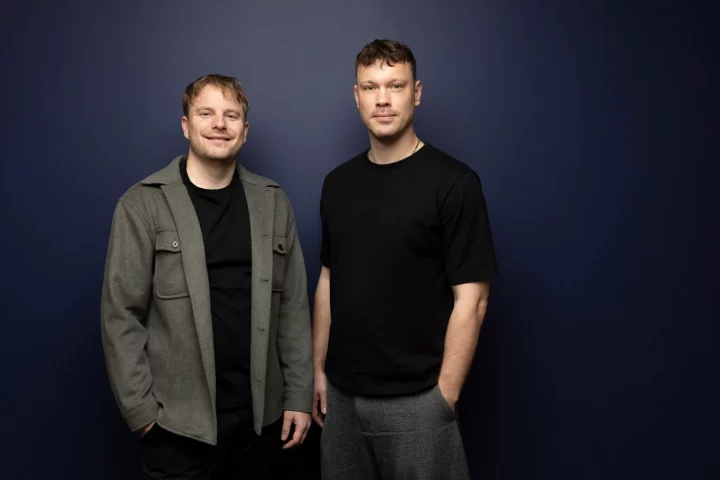In today’s edition:
- SpaceX struck a $17 billion deal for wireless spectrum, positioning Starlink as a 5G powerhouse.
- Nvidia’s Jensen Huang is set to join Trump on a UK visit, lobbying for access to China’s AI chip market.
- Google was hit with a €2.95 billion EU fine over adtech dominance, with regulators now eyeing a breakup.
Driving the conversation Today
UK toughens online safety act to cover all ages
The UK government has expanded the Online Safety Act to treat content promoting serious self-harm as a priority offence, legally requiring platforms to proactively detect and remove it, no more waiting for reports. Originally focused on child safety, the update now protects vulnerable adults, with tech firms facing enforcement by Ofcom.
Tech Secretary Liz Kendall called it a “duty of care,” while Samaritans’ CEO Julie Bentley praised the move as life-saving. With parliamentary approval expected this autumn, platforms have 21 days post-ratification to comply.
Why it’s trending: This marks a major shift from reactive moderation to preventive content governance, setting a precedent Europe may soon follow.
SpaceX’s $17B power play for 5G from space
SpaceX has acquired EchoStar’s wireless spectrum for $17 billion, half in cash, half in stock, plus debt coverage. This enables Starlink to launch direct-to-cell 5G services and integrate with Boost Mobile, while unlocking laser-linked satellites that could increase network capacity 100x.
Why it’s gaining traction: This a full-scale move on terrestrial telecoms, with SpaceX positioning itself as a global wireless infrastructure player. And yes, U.S. carriers didn’t like it one bit.
Nvidia’s Huang to join Trump on UK state visit
Jensen Huang is reportedly joining Donald Trump on a high-profile UK trip, alongside Sam Altman, Larry Fink, and Stephen Schwarzman. The visit, including a royal banquet, point ince again to Nvidia’s push to regain access to China’s AI chip market after Trump-era export bans cost it $8B in potential sales. Huang has already secured some waivers and is lobbying for approval to sell next-gen chips.
Google hit with €2.95B EU antitrust fine
The European Commission has fined Google nearly €3B for abusing its dominance in adtech, citing a conflict of interest in running both ad exchanges and buyer tools. EU competition chief Teresa Ribera warned that a structural breakup, like selling part of its ad business, might be next.
Google calls the ruling “unjustified” and will appeal. Why it’s explosive: This is the EU’s boldest move yet to rein in Big Tech’s ad empire. Meanwhile, Trump has retaliated on social media, threatening a U.S. trade probe, highlighting the transatlantic rift in tech regulation.
Undersea Cables Cut in Red Sea, Sparking Global Outage Fears
Over the weekend, multiple undersea cables, including SMW4, IMEWE, and FALCON GCX, were severed near Jeddah, disrupting internet traffic across South Asia.
Microsoft confirmed latency spikes, while Kuwait acknowledged damage. No group has claimed responsibility, but suspicion points to Houthi activity.
Over 95% of global internet traffic travels via undersea cables. Yet again this incident exposes how fragile our digital backbone is, especially in geopolitically volatile zones.
Funding to know
NRG Therapeutics – £50M Series B
UK biotech NRG Therapeutics raised £50M to advance NRG5051, an oral drug targeting mitochondrial dysfunction in ALS and Parkinson’s. Backed by SV Health Investors, Novartis Venture Fund, and the British Business Bank, the drug will enter human trials in early 2026. The Stevenage-based firm aims to build a pipeline of neuroprotective therapies addressing one of medicine’s biggest unmet needs.
BoobyBiome – £2.5M Seed Round
London’s BoobyBiome, a UCL spinout, secured £2.5M to improve infant health via breast milk microbiome research. The funding, led by Empirical Ventures, will scale its microbiome-preserving storage system and live microbiome drops for formula-fed babies.
Quantum Systems – €50M UK Expansion
German drone maker Quantum Systems, backed by Peter Thiel, will invest €50M in the UK over five years following its acquisition of Nordic Unmanned UK. The funds will build a Service, Support, Training, and Logistics Center (SSTLC) and strengthen ties with the UK MoD.
Interesting, but still cooking
- Apple’s 9 September Event: Expect the iPhone 17 lineup, a new ultra-slim iPhone Air (5.5mm thick, $899–$950), updated Watches with potential blood pressure monitoring, and AirPods Pro 3 with touch controls. A new Vision Pro with M5 chip and black finish may also debut.
- ElevenLabs Tender Offer: The AI voice-cloning startup is allowing employees to sell up to $100M in stock at a $6.6B valuation, double its January valuation. Sequoia and a16z are backing the move.
- Infleqtion Going Public via SPAC: The quantum computing firm will merge with Churchill Capital Corp X, raising over $540M and trading as “INFQ.” With clients like NASA and the UK government, Infleqtion joins IonQ and D-Wave in the SPAC race to scale quantum hardware.
Least but Not Least
Apply: DASA Innovation in Support of Operations (Phase 2, Cycle 6)
The Defence and Security Accelerator (DASA) has launched Phase 2, Cycle 6 of its Innovation in Support of Operations competition, funded by the UK Ministry of Defence.
Opened on 21 August 2025 and closing on 14 October 2025 at 12:00 BST, the competition seeks fast-paced, scalable proposals across five challenge areas: UAS propulsion, repair/reconditioning of 155mm artillery barrels, maritime autonomous navigation, seekers, and UAS defeat.
Submissions should focus on innovative solutions that are cost-competitive, manufacturable, and capable of deployment within approximately 12 months, with technology readiness expected to reach at least TRL 6.
DASA emphasizes that solutions should be demonstrated on representative platforms or relevant prototypes and aims to accelerate innovations that provide operational advantage faster than potential adversaries.
Policy Watch: The Online Safety Act amendments are expected to pass Parliament this autumn, making proactive content moderation a legal requirement. Firms should audit detection systems now to avoid penalties.












